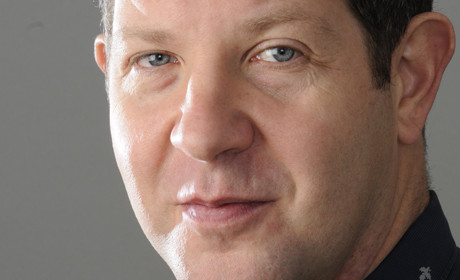
John Kampfner
Credit: Index on CensorshipJohn Kampfner, chief executive of free speech NGO Index on Censorship, told the Leveson inquiry today that coverage of Westminster during his time as political correspondent of the Financial Times was "extraordinarily pliant" and members of the press were "lined up to be fed" stories.
Kampfner, who also worked for Reuters, the BBC, the Daily Telegraph and the New Statesman during his time as a journalist, covered politics for the FT between the mid 1990s and mid 2000s.
He said today that his experience of the Westminster lobby during that period "was a media that was extraordinarily pliant".
"With some very notable exceptions, there was a culture of almost feeding the beast.
"I remember spin doctors saying, 'we've got to feed the beasts, what shall we feed them with today?', and they would line up to be fed."
He said one unnamed spin doctor had "literally dictated" a story down the phone to him, and when asked questions by Kampfner, told him to "shut up and take it down if you want more from where this came in the future".
There was, he said, "very much a sense of services rendered".
"You write the story faithfully and you'll get more like it in the future."
Kampfner referred to Tony Blair's famous 1997 broadside against the press, in which he called it a "feral beast", saying that the journalists "were occasionally feral, but mostly they were locked up".
The Index on Censorship chief asked Leveson to consider "a view hardly made during this inquiry", which he said was that the UK media was "fundamentally weak".
"While I as an individual and all right-minded people condemn actions that led to phone hacking, the weakness of the UK media and fundamental weakness in general are something that should strongly be taken into account."
Kampfner also accused politicians of "desperation to be in with News International and [Daily Mail publisher] Associated Newspapers".
The Index chief also stressed to Leveson, who will report to parliament later this year with recommendations for reforming press regulation, that many of the problematic issues raised by witnesses so far – including those suffered by actor Sienna Miller, who described to the inquiry being chased and spat at by photographers – were covered by existing laws and that to add statutory regulation to the press would be a mistake.
"Those things are covered by existing law, were it to be properly enforced. It may not be preventable in the first instance but it is, if this is the right word, dealable with after."
Jonathan Heawood, director of English PEN, who appeared alongside Kampfner, echoed the sentiment, telling Leveson: "I urge you strongly not to go down the statutory route". He also praised the idea of a readers' editor – saying the Guardian had "blazed a trail" in appointing one – and suggested that the role could be a stipulation of membership of a self-regulatory body.
According to Kampfner, a joint report by Index on Censorship and English PEN will be published in March, with a draft having been already submitted to the Leveson inquiry.
He indicated that the report would recommend pre-trial dispute resolution systems, with judges permitted to "take cognizance of the willingness of parties to engage in any of the several potential fora".
Kampfner announced earlier this month that he would be stepping down as chief executive of Index on Censorship in Spring to join Google as a part-time consultant on free expression and cultural issues.
Free daily newsletter
If you like our news and feature articles, you can sign up to receive our free daily (Mon-Fri) email newsletter (mobile friendly).









